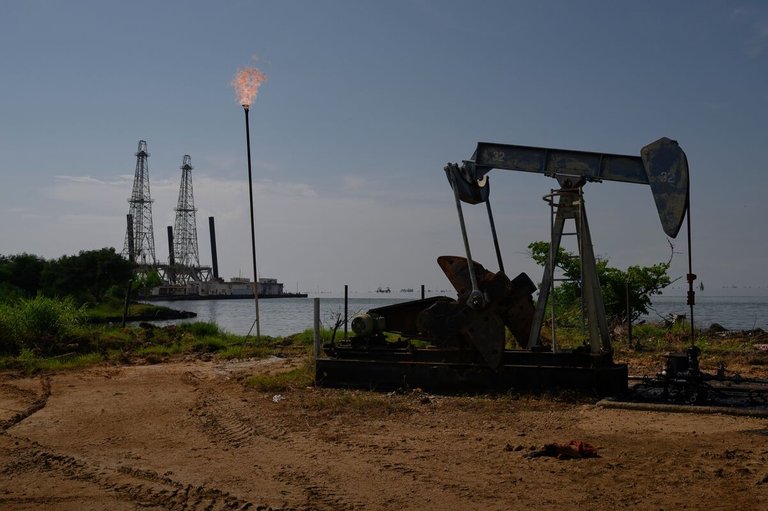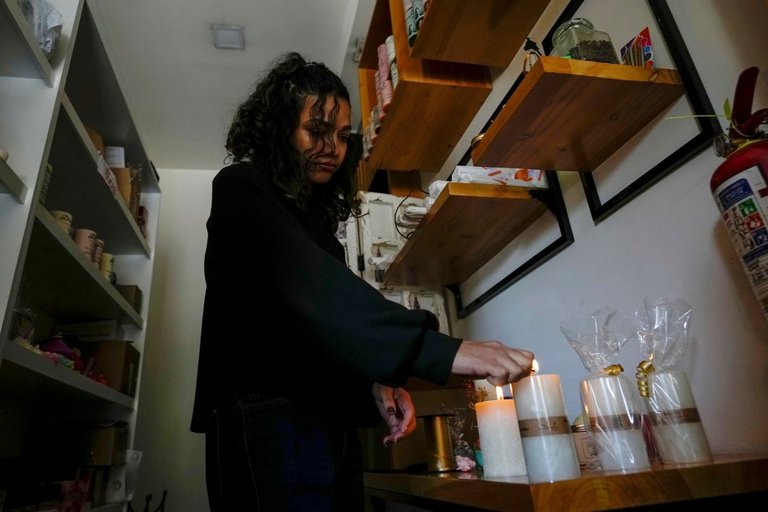
Washington reinstates sanctions against Venezuela but leaves the door open somehow...
As always, rhetoric is one thing, and practical policy-made regulation is another. Finally, the White House has decided to reinstate sanctions on the Venezuelan oil and gas sectors, claiming that Caracas has not fully complied with a deal signed with the opposition in Barbados. Foggy Bottom states that "[despite] delivering on some of the commitments made [...] we are concerned that Maduro and his representatives prevented the democratic opposition from registering the candidate of their choice, harassed and intimidated political opponents, and unjustly detained numerous political actors and members of civil society". So companies that had begun operating in Venezuela after the easing of sanctions in October 2023 now have 45 days to shut down their projects. In principle. The most important part of the State Department release reads, "[the] Treasury's Office of Foreign Assets Control also will consider requests for specific licenses to continue activities beyond the end of the wind-down period on a case-by-case basis". It's time for Remy Danton.
Companies such as Chevron, which according to the Venezuelan government will expand its operations, Spain's Repsol and Italy's Eni will continue their businesses because they have specific licenses issued from Freedman's Bank Building. "The United States will continue to assess sanctions policy towards Venezuela in light of actions taken by Maduro and his representatives as the country approaches the July 28 election and to advance U.S. interests", they say. "The U.S. had to show they were doing something", a Caracas-based oil consultant told The Wall Street Journal. "But in the end, things don't change all that much, it just adds a lot more bureaucracy", he notes. "Our actions should not be viewed as a final decision that Venezuela cannot hold a democratic election", added a senior U.S. official. So Washington prioritizes its concern for the energy markets—shaken by multiple crises on the other side of the ocean—over what is happening politically in the South American nation. The once booming Venezuelan oil industry is now producing some 800,000 barrels of crude per day, of which it ships about one-fifth—not a representative figure—to the United States. Last month exports reached their best level in four years.
 An oil pumpjack in Cabimas, Zulia state, Venezuela (source).
An oil pumpjack in Cabimas, Zulia state, Venezuela (source).In this story, the pressure exerted by the migratory dynamics is another factor. And there were deliberations on how returning to the maximum-pressure policy would throw Maduro into the arms of Russia, China, and Iran. As far as domestic policy in Venezuela is concerned, this step by the Biden administration is premium fuel for the anti-imperialist narrative of the Miraflores Palace, as it provides arguments to reinforce nationalism and the need for unity in the face of aggression. From what a friend based in Venezuela told me, even some opposition businessmen did not want a return—even a limited one like this—of the sanctions. "There is no sanction, there is no threat that, today, will harm the effort to build a new productive economic model, because today we do not depend on anyone in this world, we only depend on our effort, on our work, on the union we have", said the Venezuelan president. "We are commercially prepared. Logistically, we are going to continue producing", promises the Minister of Petroleum, who affirmed to be in negotiations with the American ConocoPhillips and ExxonMobil—the same from the controversy over the Essequibo?—and the British BP. Yesterday, Wednesday, Caracas approved the creation of an oil joint venture with majority participation of the State, seeking to attract foreign investment.
China continues to grow its presence in Latin America
Although the United States remains the main importer of Nicaraguan products, authorities in Managua have reported that the Asian giant has become the sixth main destination for exports from the Central American country. In the first quarter of the year, China bought Nicaraguan products for about 28 million dollars, a significant increase over the same period last year, thanks to the entry into force of a Free Trade Agreement on January 1. Thus, Beijing displaced South Korea and the United Kingdom in the list of Nicaragua's most important partners, importing products such as seafood, beef and beef offal, edible crude oil, farmed shrimp, sawn timber, and textiles. Daniel Ortega's government gravitates toward China in its struggle with the United States.
 Source
SourceAfter having more than a few run-ins with Washington over his controversial security strategy, Nayib Bukele is also "tuning in" China satellites. This week the Minister of Economy announced the official start of talks with Zhōngnánhăi to formalize a Free Trade Agreement. "We are sure that we are at the best time to strengthen trade and investment ties with a strategic partner, such as China", said Maria Luisa Hayem, who bet on working ASAP on negotiations. Interestingly, on this front, Bukele is reaping the harvest of the severing of diplomatic relations with Taiwan decreed by his predecessor, the leftist Salvador Sánchez Cerén, who, by the way, is a refugee in Managua after being accused of corruption. Last year the volume of bilateral trade exchange between China and El Salvador amounted to US$1.8 billion, with the Asian nation confirming itself as the country's third largest trading partner, behind the United States and Guatemala.
Six-hour power outages: a new crisis in Ecuador
Yesterday, Wednesday, the Ecuadorian Ministry of Energy ordered "that power cuts be maintained on a national scale, except for hospitals and educational units", in a measure that attempts to alleviate a serious deficit of the electro-energetic system in the South American country, in which nearly 80% of the energy comes from hydroelectric sources. A voracious drought—associated with the climatic phenomenon of El Niño—has compromised the electrical supply. At the same time, the country has neglected for years the installation of new generation capacity and the maintenance of existing thermoelectric plants. From the Carondelet Palace, officials denounce that there is corruption and sabotage involved here. In that sense, Noboa fired the person who until last Tuesday was in charge of the Energy portfolio. "The energy cuts not only responded to environmental circumstances but to unprecedented acts of corruption and negligence", says the office of the presidency. However, some analysts suggest that the young president is trying to make up for his inability to foresee this crisis. Another reason alluded to by critics of the government's narrative is the lack of evidence in its allegations. Neither Thursday nor Friday people will work, and 50% of the current month's electrical bill will be charged to the national budget.
 A woman lights candles in her store after a power outage in Ecuador (source).
A woman lights candles in her store after a power outage in Ecuador (source).And this is all for our report today. I have referenced the sources dynamically in the text, and remember you can learn how and where to follow the LATAM trail news by reading my work here. Have a nice day.

